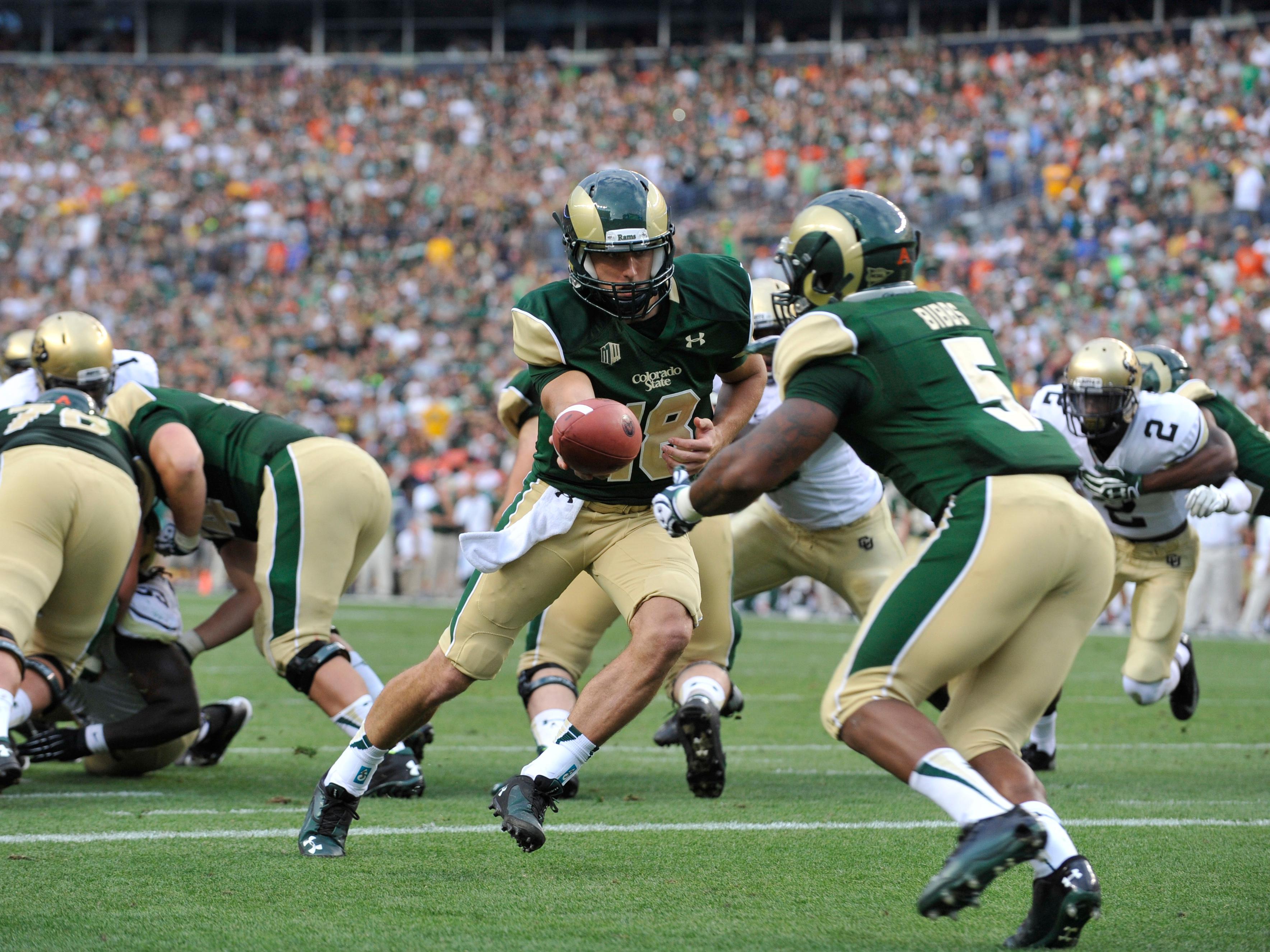
Colorado State University is not a college football powerhouse, but the Rams are having a very good year.
The team finished 9-2 and is waiting to hear which bowl game they'll play in. Coach Jim McElwain just took the head coaching job at the University of Florida, a top football school.
It seems an apt moment for CSU President Tony Frank to recommend that the university's Board of Governors build a new stadium to replace the one that's aging. The price tag is estimated at $200 million -- with a caveat. The exact size, and thus cost, of the stadium still needs to be finalized.
Kelly Lyell, who covers CSU athletics for the Fort Collins Coloradoan newspaper, says Frank's recommendation means a long-standing debate about whether to build a stadium is all but over. The board is highly likely to support that recommendation and the stadium will be built, he says.
Frank first released his recommendation on Saturday. He says the school can build the stadium without sacrificing academics and without draining the school's general fund. But he's backed off a promise that no general fund money will be used, which is one indication that despite the finality of Frank's endorsement, controversy over the project will likely continue.
Lyell says the team's strong performance on the field this year has helped Frank sell the project to some people who were undecided about it. As a sport, college football is increasingly concentrated in its major conferences, and some observers say building a new stadium will help CSU's bid to get into one of them, like the Big 12. Right now it plays in the Mountain West Conference, which is not among the major players in college football.
Frank writes in his memo to the board that the school should invest in its football program because it adds value to the campus and will produce a return on that investment.
"Improvements in intercollegiate athletics do not have to come at the expense of
academics, either fiscally or in focus," Frank writes. "Our budgets, investments and priorities have been and will remain unambiguously focused on our academic mission."
To that end, during deliberations over the project, Frank consistently said a new stadium would not require using tuition, state or federal money. But the school came up short on its goal to raise $110 million by October, and in his recommendation to the board, Frank appears to change his tune.
"I remain convinced that every effort must be made to minimize the use of and risk to our general fund," he writes.
Lyell says that perhaps the biggest reward for building a new stadium could be getting alumni and fans to spend time on campus. He remembers covering the team when it played at Boston College. Attendance for the game was relatively low, Lyell says, but he remembers seeing alumni tailgating for hours before kickoff all across campus.
"That's what CSU really wants," Lyell says. "They feel like they can get more engagement, more people willing to donate money."
Now, Lyell says, many fans go to games across town but never set foot on campus. He says in addition to football, the new stadium will likely hold community events such as fireworks displays.
Still, concerns about traffic, noise and parking shortages persist. CSU is working with officials in Fort Collins on those issues. Then there are questions about whether football itself can remain popular.
In his memo to the board, Frank says he assumes football will continue to be popular both as a collegiate sport and in general.
While television ratings and attendance at football has not changed significantly in recent years, general concern about its safety has. Parents, including celebrities from LeBron James to President Barack Obama say they wouldn't let their kids play football, given the health risks.
Still, Frank isn't alone in his findings. Committees of staff and community members made their own recommendations last month, and also endorsed building a new stadium.








